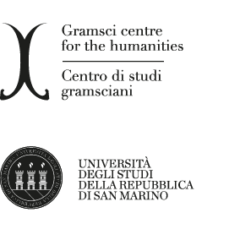One reads in many different ways, as is well known: a multiplicity of styles, of situations, of degrees of attention, ranging from absolute concentration to non-reading. But the idea of reading Dante’s entire Commedia in one week is nonetheless impressive, especially for those who have read it, well or badly, a little at a time, in the three long years of high school.
The protagonists of the exploit are Harvard doctoral students, a small group of students of our advisor Jeffrey Schnapp. Setting out to explore the material world around the Comedy, they chose one of ten assigned themes: the road (travel by land), boats (travel by water), trees, soil, doors and doorways, blood, color, flight (travel by air), sound, and mirrors.
For each theme, during intensive, accelerated reading of the entire poem, they filed the most pertinent Dantean passages. And then, over the next twelve weeks, every Wednesday they discussed, at a distance, the “world of things” in the Comedy, guided by their teacher. Before each meeting, they studied an extensive literature: medieval sources and modern bibliography, references to texts and printed pages, which Harvard College made accessible not only to them, but to all readers.
An Italian newspaper, the “Gazzetta di Mantova”, followed the challenge, or the experiment live, recounting them in seven episodes, framing the whole operation, and giving the floor to Schnapp (with Corrado Confalonieri): seven precious articles, very lucid, in which the adventure is summarized and explained to perfection. Among the celebrations of Dante’s centenary, we would be ready to bet that this is one of the most original and thought-provoking.
Camminare nel medioevo: facciamo archeologia della parola;
Le strade e le barche: una rilettura facendosi ispirare da Italo Calvino;
L’erotismo delle parole nuove e il pantano intorno a Mantova;
Lingua e visione del mondo. I dadi sono sempre da rilanciare;
Il colore è cultura e contesto. Andiamo a scoprire le tonalità;
La simpatia per chi sfida i limiti. Il volo: colpevole chi non ci prova;

